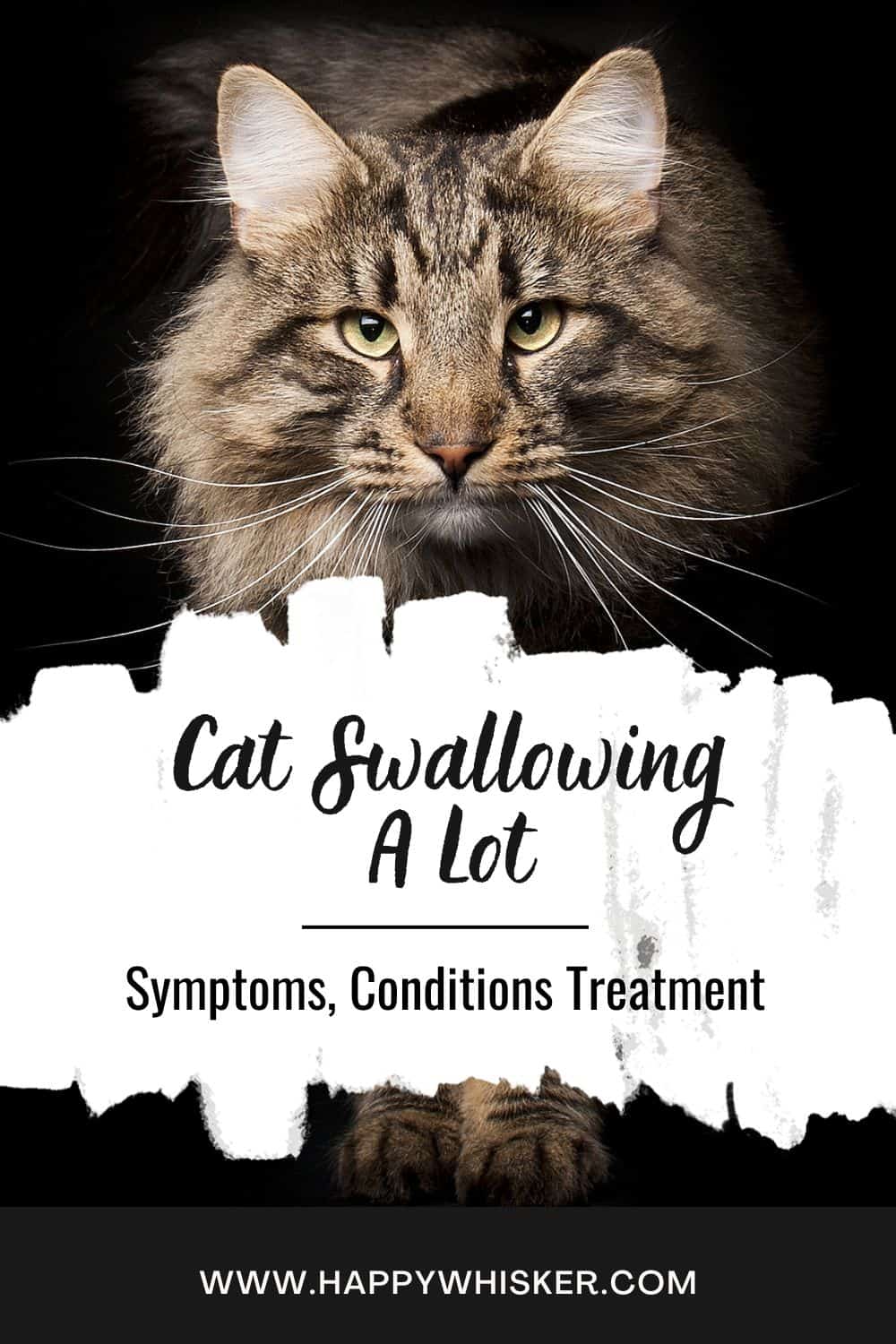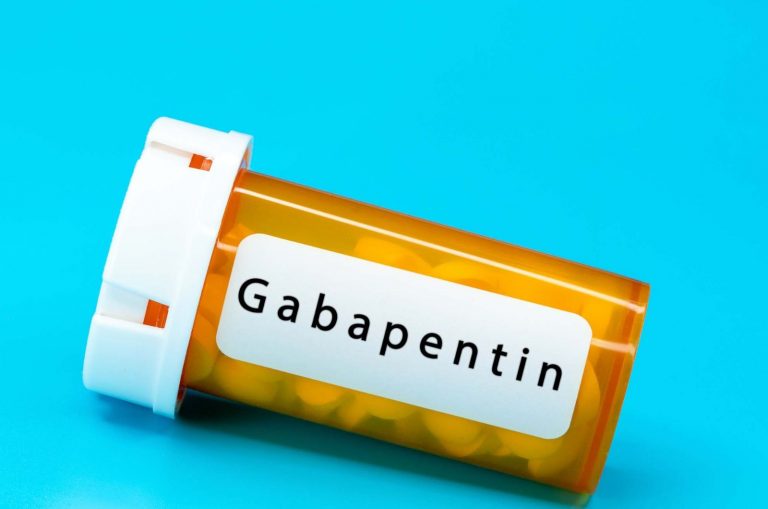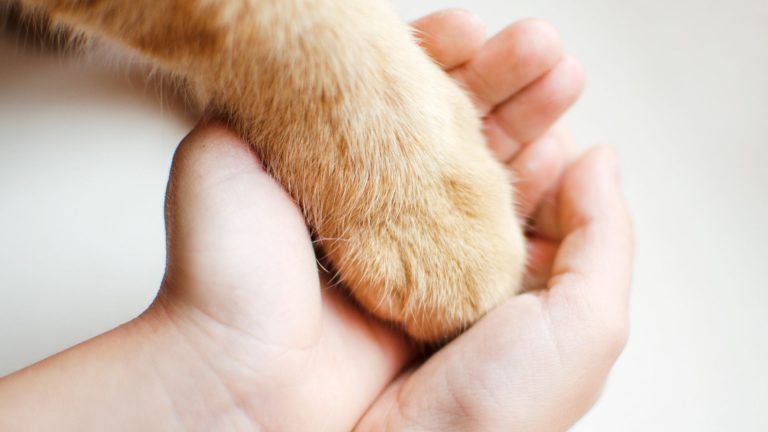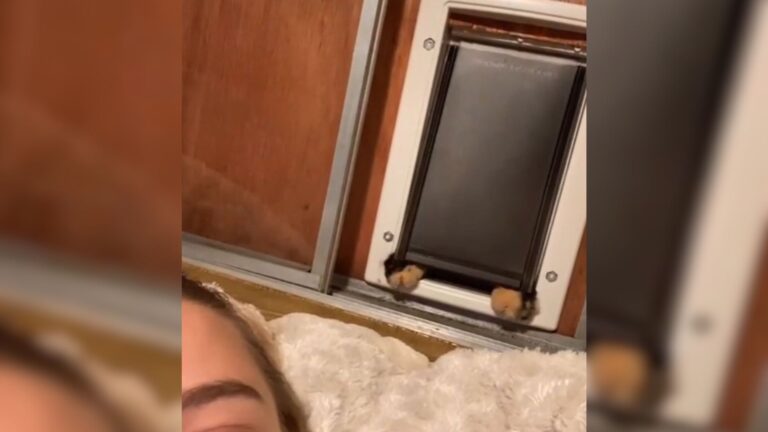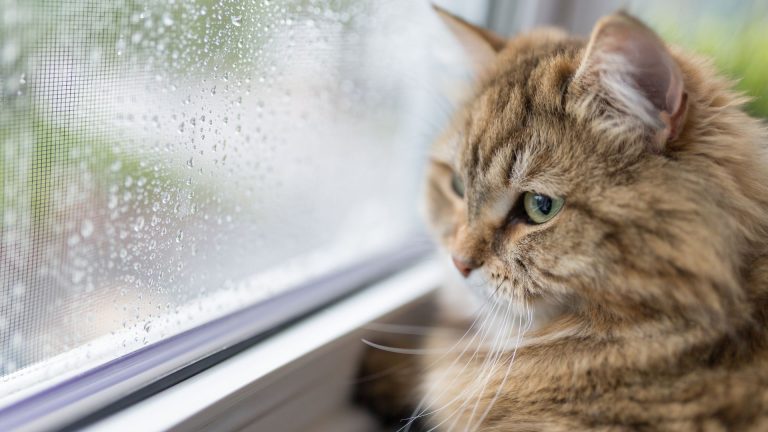Cat Swallowing A Lot – Symptoms, Conditions & Treatment
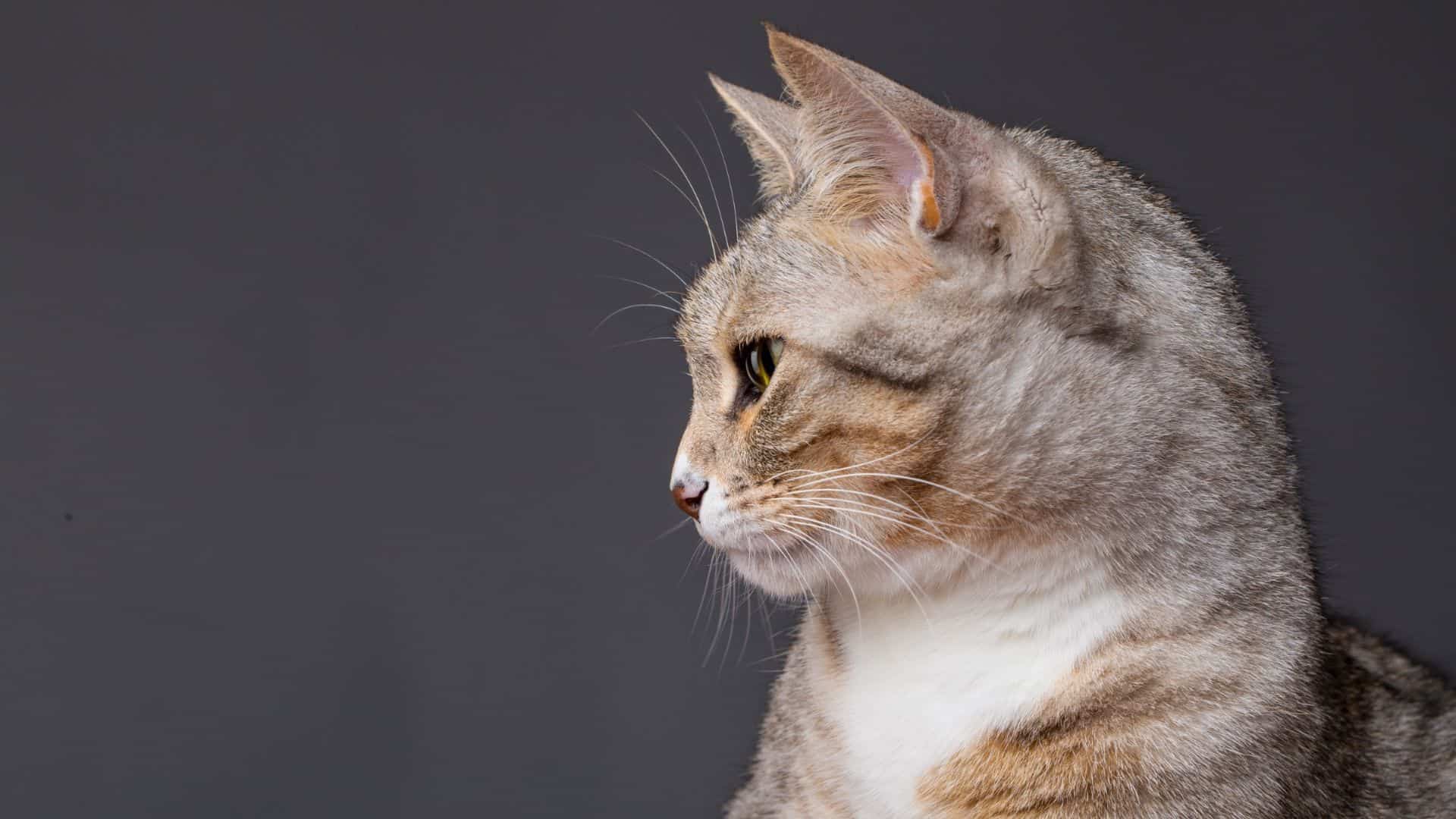
Seeing your cat in pain or having certain health problems can be tough for many cat parents, as we all want the best for our feline friends.
One of the common conditions you may notice is your cat swallowing a lot. If your cat has swallowing difficulties, you can immediately conclude that something is wrong and that your cat requires professional help in order to get better.
However, it’s good to know what conditions may be the cause of your cat’s swallowing a lot, as they may range from minor to severe.
So, if you want to put your cat’s health first, read this article and find out the underlying causes for this symptom and how to treat them.
Is Your Cat Swallowing A Lot?
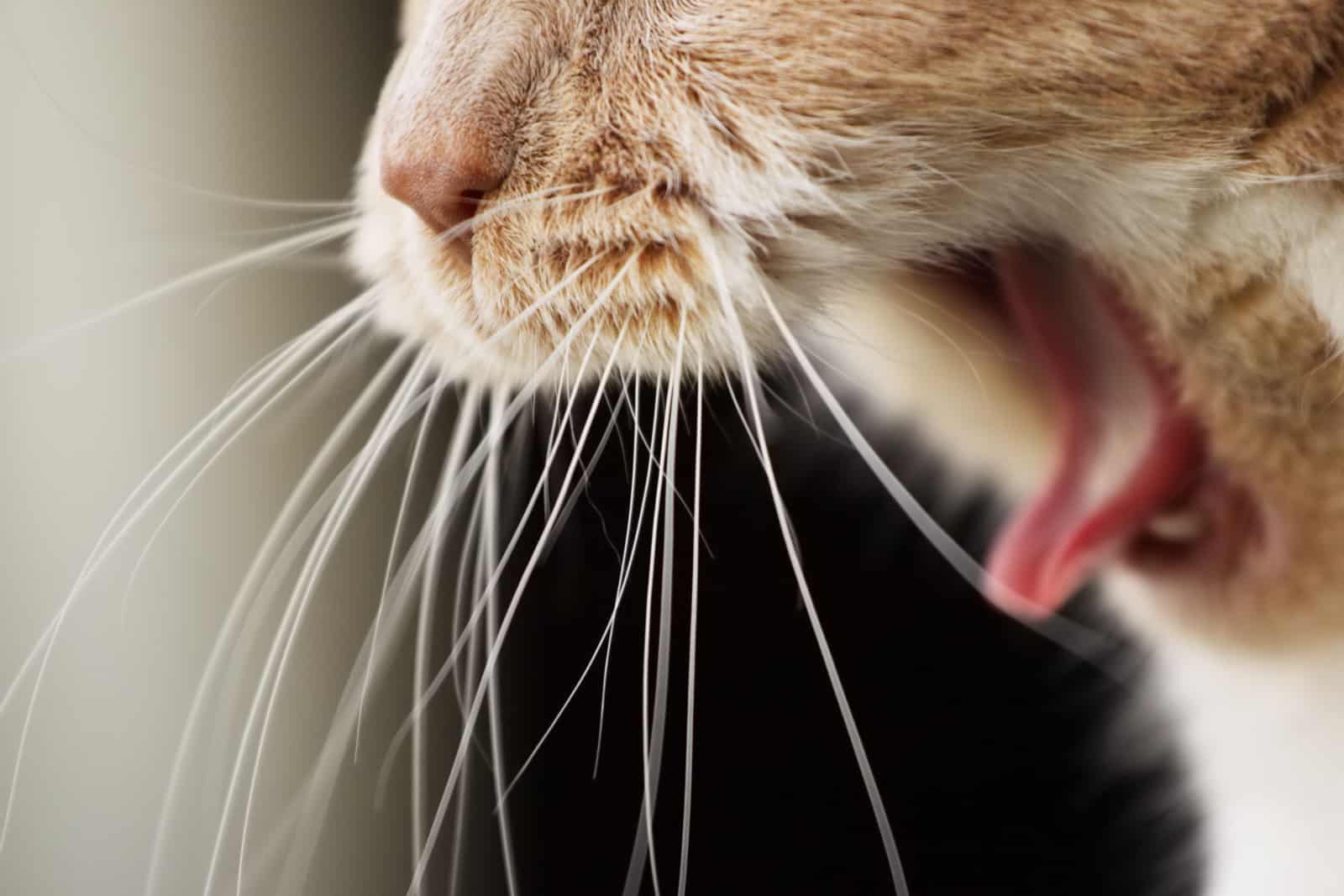
If you notice your cat swallowing a lot, it means that you should start paying closer attention to your cat as it may be in extreme pain due to different health conditions.
It’s completely normal if your cat coughs or gags occasionally. However, if you notice your cat coughing, gagging, and drooling excessively in a short period of time, it usually means a more severe condition that needs proper examination, diagnosis, and treatment.
The most common condition in cats that causes swallowing difficulties is called dysphagia. This condition needs appropriate treatment if you want to avoid further health problems. So read on and learn everything about dysphagia in cats.
Dysphagia
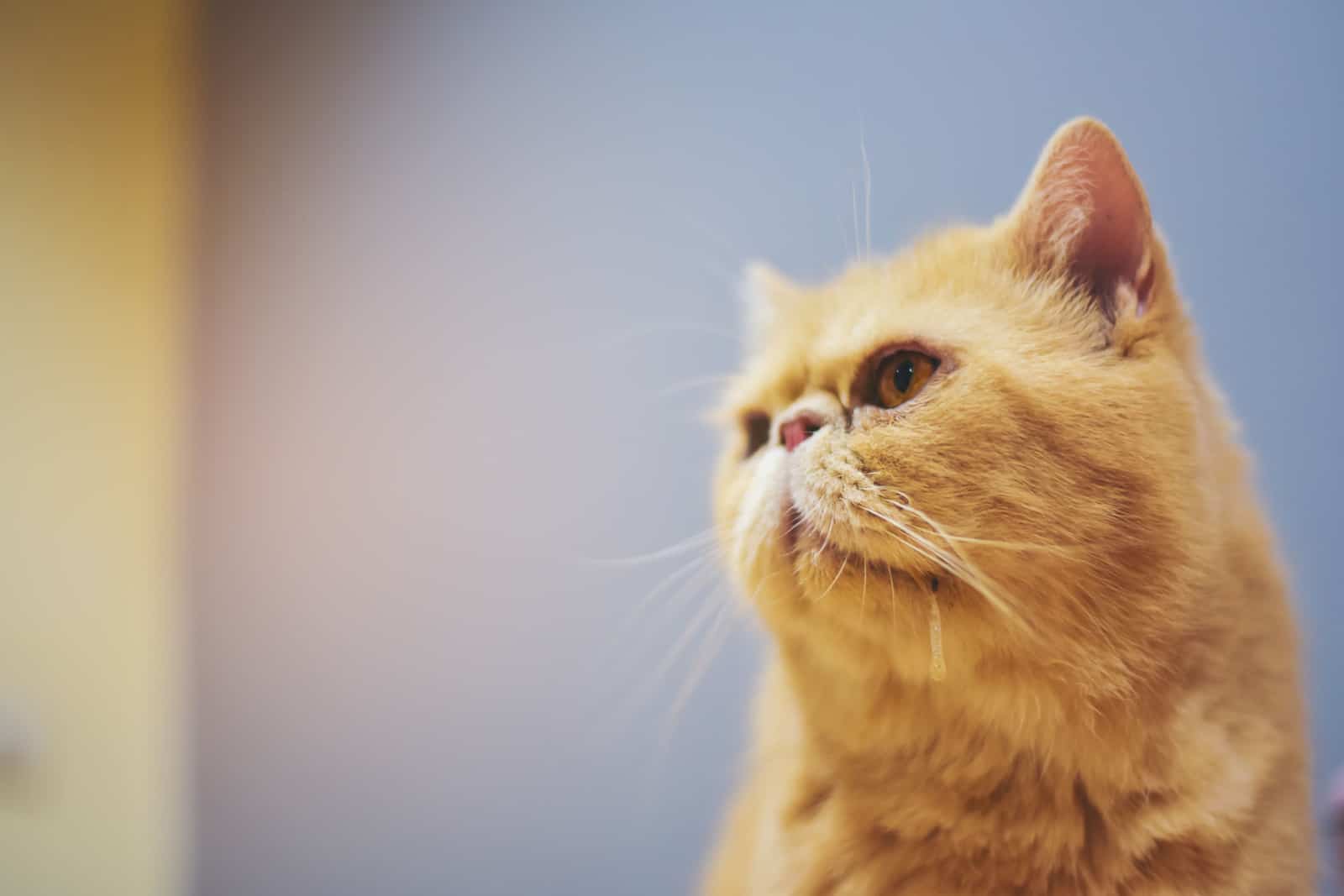
Dysphagia in cats is a condition where a cat struggles to swallow certain food and liquids or cannot swallow them at all.
If treated on time, it’s usually a minor condition, and cats recover very fast. However, if the condition is left untreated, it may lead to many other health problems, such as weight loss, as cats cannot eat.
Further on in the article, I will show you the symptoms of dysphagia in cats, what usually causes it, as well as how to diagnose and treat it properly, so that you’re prepared in case this happens to your feline friend.
Symptoms Of Dysphagia In Cats
Before providing you with the symptoms of dysphagia, it’s essential to know that there are three different types of dysphagia and that each type has specific symptoms.
That’s very important to know, so that you can tell the vet the exact symptoms you have noticed in your cat, as that can help in determining the diagnosis more easily.
Pharyngeal Dysphagia
Pharyngeal dysphagia refers to swallowing difficulties where the front muscles of the pharynx are affected. This type of dysphagia is usually followed by symptoms such as:
• Gagging
• Drooling
• Coughing
• Traces of blood in a cat’s saliva
• Inability to swallow
• Unusual cat movements while eating
• Excessive chewing behavior
Cricopharyngeal Dysphagia
This type of dysphagia affects the back muscles of the pharynx, and the following symptoms usually follow:
• Loss of appetite
• Loss of weight
• Gagging
• Inability to swallow
• Vomiting
Oral Dysphagia
Oral dysphagia is also common in cats, and this affects the muscles that are used for chewing and swallowing food.
So, if your cat cannot swallow food or water and shows the following symptoms, it’s definitely oral dysphagia:
• Pulling head backward when eating
• A cat cannot open its mouth or hold food in its mouth
• Holding food in the sides of the mouth
You may also want to find out what are the causes and solutions for a snorting cat!
Conditions That Cause Dysphagia
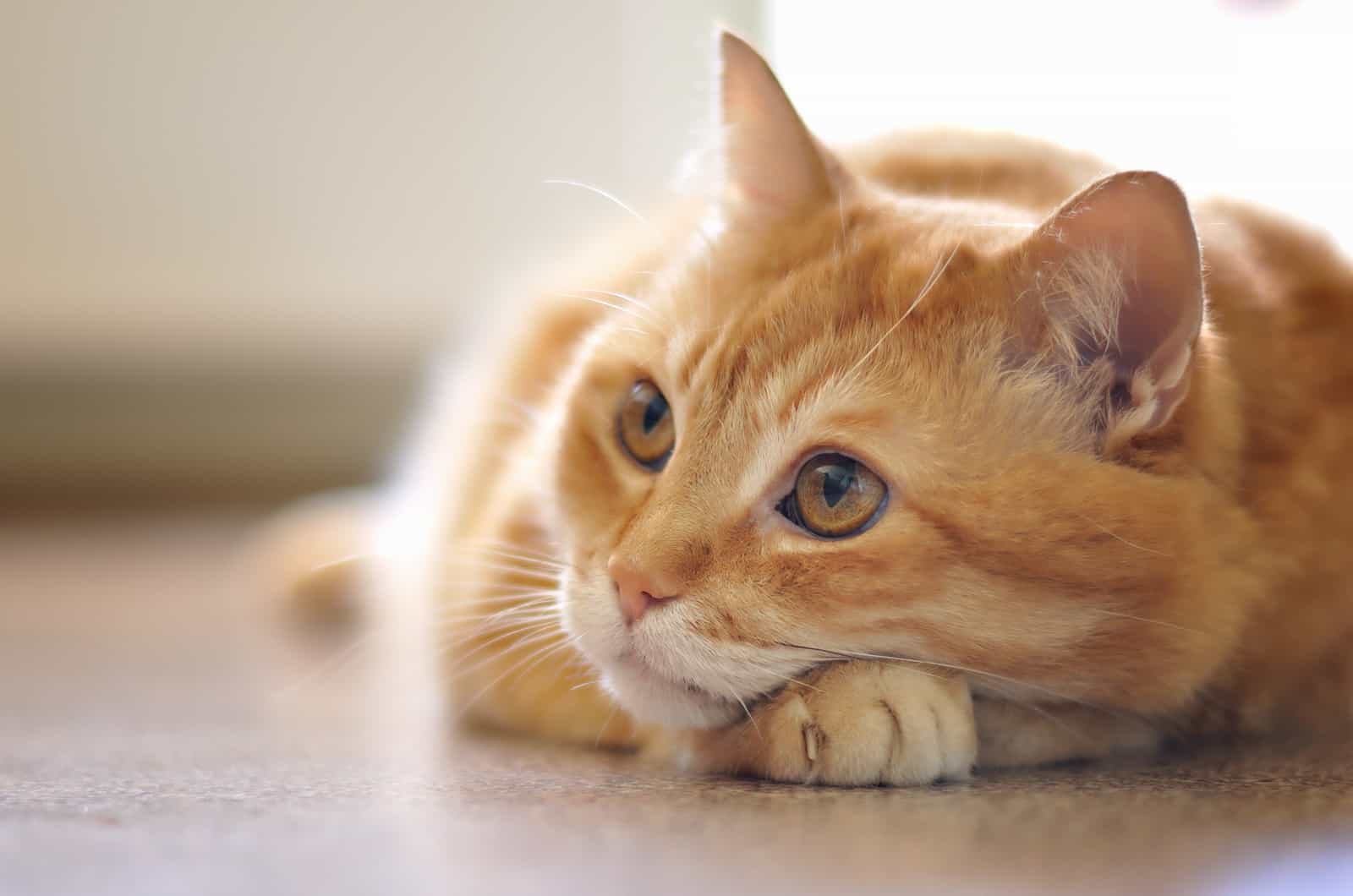
Each type of dysphagia has specific symptoms, but they’re also caused by different conditions. Dysphagia may be caused by many different conditions, even by neurological disorders or rabies, which are more serious.
It’s crucial to determine the exact cause of dysphagia in cats so that the veterinarian can provide your cat with proper treatment.
So, further on in the article, I will list the possible conditions that may cause feline dysphagia.
Pharyngeal Dysphagia
Pharyngeal dysphagia may be caused by the following conditions:
• Swollen lymph nodes
• Cancer
• Abscess
• Inflammation of the pharynx
Cricopharyngeal Dysphagia
Cricopharyngeal dysphagia is often caused by neurological conditions such as:
• Muscular dystrophy
• Cranial nerve dysfunction
• Infectious polymyositis
• Nerve damages and disorders
• Strained muscles
Oral Dysphagia
Oral dysphagia in felines is often caused by the following conditions:
• Mouth or jaw injury
• Dental diseases
• Foreign bodies in the cat’s mouth
• Bacterial infections
• Tongue paralysis
• Jaw paralysis
Determining The Diagnosis
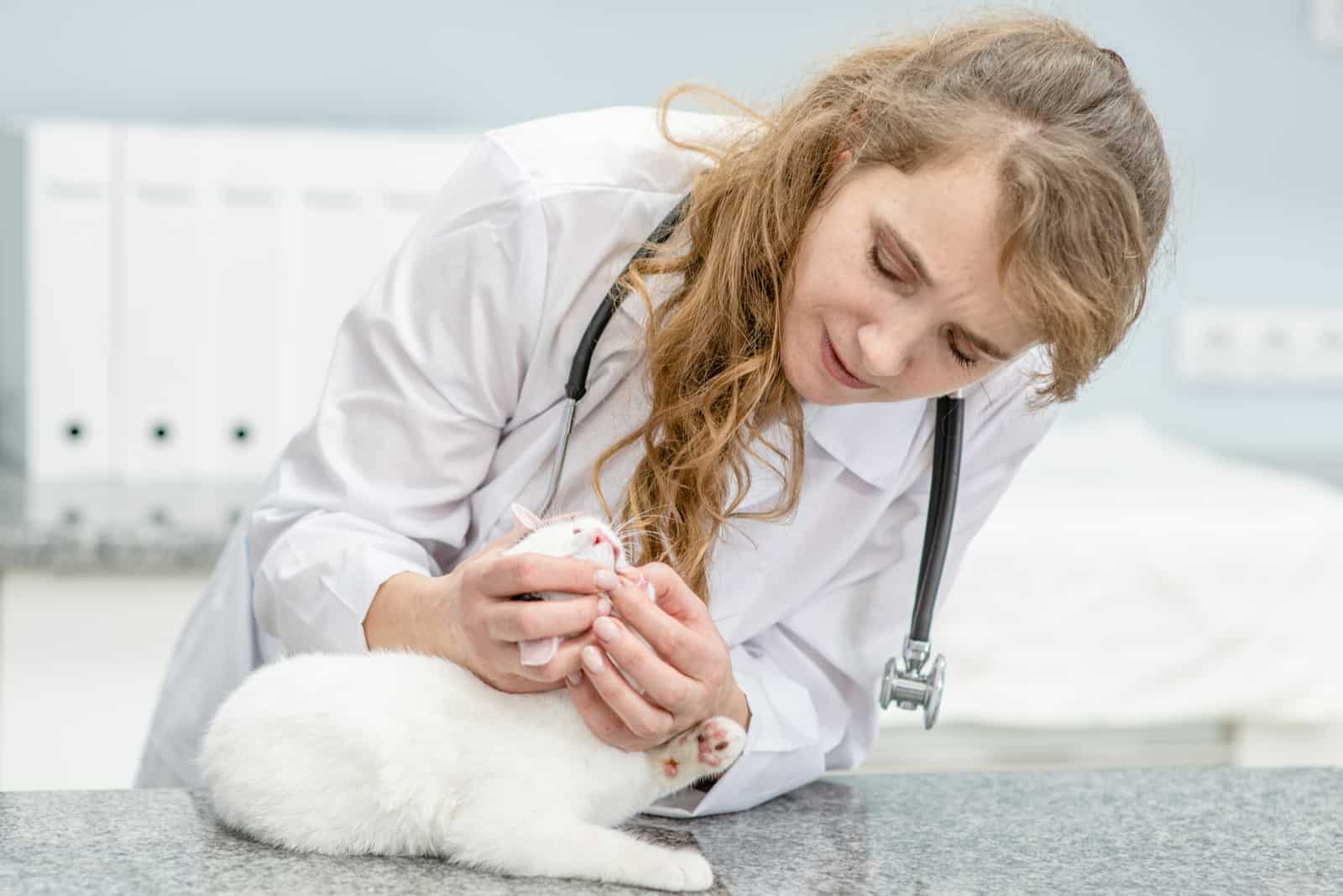
Whatever your cat may be suffering from, it’s always crucial to determine the right diagnosis because if you don’t, your pet can be prescribed the wrong treatment, and your cat may not be feeling any better.
When cat owners bring their cats with swallowing difficulties to me, first, I need to know what symptoms they have noticed, how long for, and how often their cat has been having these difficulties.
That gives me an insight into possible causes, but I still need to run certain tests to discover the exact underlying cause.
So, as soon as you notice difficulty swallowing in your feline friend, make sure that you contact your vet.
Until you take your cat for an examination, pay special attention to the symptoms and the cat’s behavior. It’s also important to mention if your cat has had a jaw fracture or any kind of injury, as that can be very helpful when making a diagnosis.
When determining the diagnosis, the vet will perform a blood test, biochemical profile, and urinalysis to see whether the main cause is an infection, kidney disease, or some kind of injury.
Besides that, if your cat has a fracture, the vet will take an X-ray of the cat’s mouth, chest, and skull and an ultrasound of the pharynx.
If certain growths are discovered with these tests, the vet will do a biopsy test to check for cancerous cells.
Although the vet will be very close to the diagnosis after performing these tests, it’s a bit more complex, and our job is to provide you with the right diagnosis. Therefore, the vet will continue with the examination by doing a fluoroscopic barium swallow, a test which will show how your cat swallows.
Finally, after determining the exact location of the issue, that is, either cat’s throat or the cat’s oral cavity, the vet will be able to tell you what the main cause of your cat dysphagia is, as well as the exact type of dysphagia.
Treating Dysphagia
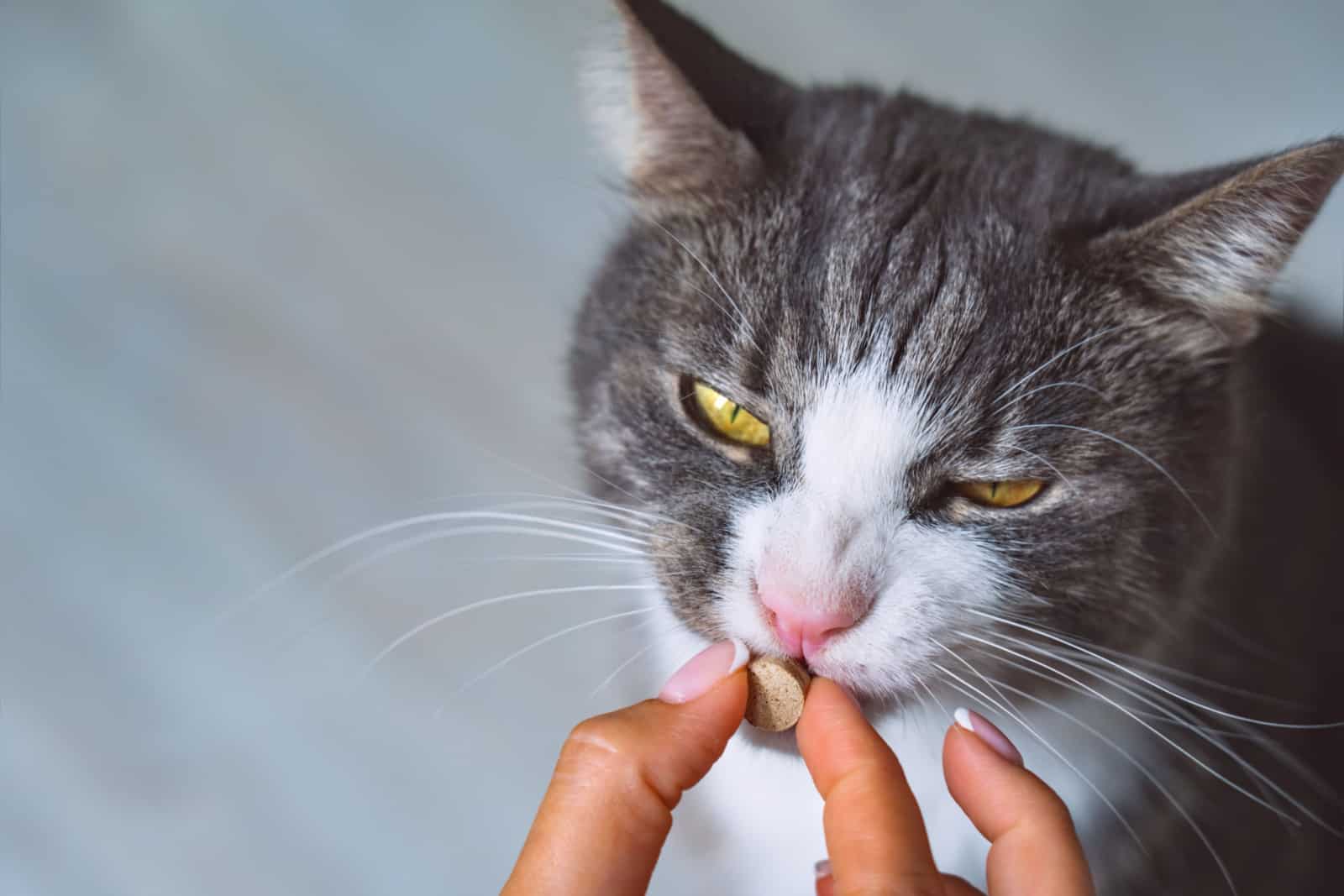
Of course, as with every other health issue, each condition is treated based on the underlying cause. Therefore, if the vet determines that your cat has dysphagia due to an infection, they will prescribe you antibiotics.
On the other hand, if the cause is some kind of inflammation, then the vet may prescribe steroids. When using these medications it’s crucial to follow the vet’s instructions and to ask them any questions that you may have instead of doing things on your own.
Furthermore, if the underlying cause of this issue is some kind of dental disease or a broken tooth, the vet will remove the affected tooth and prescribe antibiotics.
In cases where the cause of dysphagia is some kind of muscle injury, the vet will recommend the use of muscle relaxers.
Finally, in severe cases, such as fractures or abscesses, the vet will have to perform surgery to treat the issue, or if the diagnosis is cancer, then the vet will recommend radiation or chemotherapies in order to treat your feline friend correctly.
When Will Your Cat Recover From Dysphagia?
If your cat suffers from dysphagia and you wonder how long the recovery period will last, you should know that it all depends on the underlying cause of this condition and how your cat responds to the treatment.
For example, if the cause of dysphagia is an infection or inflammation, your cat will recover after 10 to 14 days.
It’s similar with other causes; however, if the cat has cancer and has to receive chemotherapy, then the recovery period may last longer depending on the type of cancer as well as on your cat because not every cat will respond the same to these therapies.
Remember that during this period, your cat will need special care; therefore, you can consult with your vet on what you can do to make your cat feel better.
Additionally, in severe cases of weight loss, the vet may keep your cat and feed it with a feeding tube to have a clear insight into the cat’s progress.
Moreover, it’s crucial to take your cat to regular vet-checks so that the vet can properly track the cat’s progress and react immediately if any issues arise.
Also, check out the reasons for a cat foaming at the mouth!
Other Causes Of Swallowing Difficulties In Cats
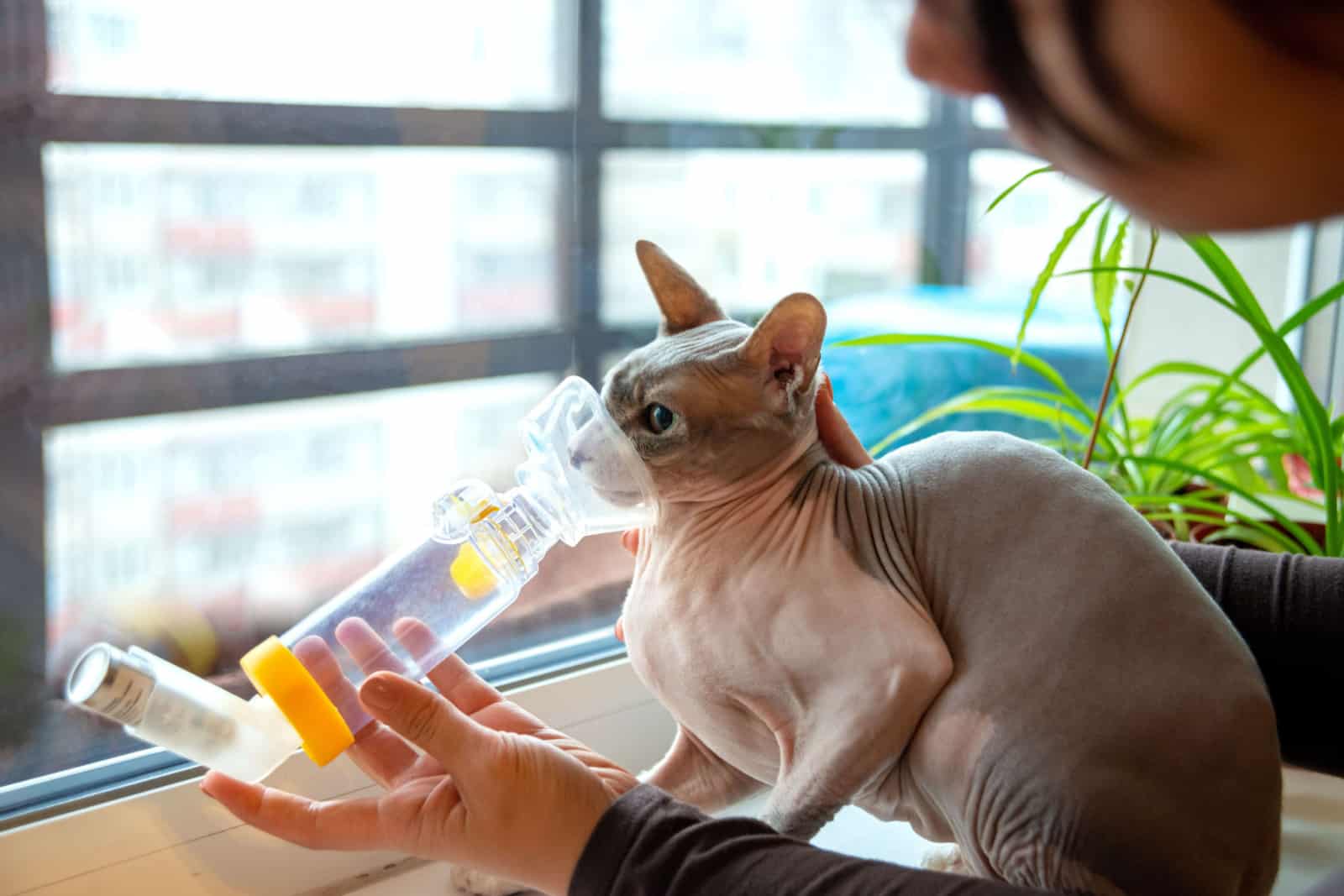
Besides dysphagia, there are two other possible reasons for your cat swallowing a lot. Because of that, it’s very important to pay attention to the cat’s symptoms so that you can inform your vet about everything.
The other two causes of swallowing difficulties in cats are feline asthma and hairballs. Each of these issues has specific symptoms that can help determine the right diagnosis and provide the cat with appropriate treatment.
Feline Asthma
Many people are surprised after learning that cats can have asthma too; however it’s true, and it’s common for middle-aged cats. Because there are more possible reasons for swallowing difficulties in cats, it may be hard to determine feline asthma.
Although rare, it’s possible for cats to have asthma. It’s a respiratory disease that refers to the reaction of the cat’s immune system to certain allergens from the environment. After inhaling these allergens, cats may exhibit common symptoms such as:
• Coughing
• Gagging
• Swallowing difficulties
• Runny nose
• Low energy levels
• Respiratory issues
At first, feline asthma may appear to be similar to when cats produce hairballs; however, these are two completely different conditions and need to be separated.
Cats who have feline asthma will cough due to respiratory system issues, and their cough will be dry or wheezing, while that’s not the case with hairballs production.
Moreover, some cats with severe asthma may also breathe through their mouth due to lung issues causing difficulty with breathing.
Diagnosis
So, if you notice some of these symptoms, ensure you monitor your cat closely and take it to the vet for an examination.
It’s important to inform your vet about everything from the moment your cat starts showing symptoms, including the cat’s medical history, in order to determine the right diagnosis more easily.
If the vet suspects that your cat has feline asthma based on the gathered information, they’ll have to run certain diagnostic tests to be sure.
These tests include allergy testing, microscopic analysis, blood work, radiographs, computed tomography (CT), or bronchoscopy.
These last three tests may definitely help in determining the diagnosis. The reason for that is that the radiograph test will show branching patterns on the airways, which indicate feline asthma, and it may also help notice any changes in the cat’s lungs.
CT scans allow the vet to diagnose feline asthma correctly and separate it from other possible conditions. Finally, bronchoscopy includes a small camera that passes through the cat’s mouth into the airway to collect cell samples.
After these tests, the vet will be able to determine the right diagnosis and provide your cat with possible treatments for this condition.
Treatment Options
After the vet determines that your cat suffers from feline asthma, he’ll provide it with appropriate treatments.
Feline asthma is usually treated with bronchodilators and corticosteroids, and anti-inflammatory medication such as prednisone that will help in reducing the inflammation in the cat’s airways.
It’s important to follow the vet’s instructions and not do anything alone if you wish your feline friend to get better.
Besides, you should be aware of possible side-effects your cat may experience while using these medications. Bronchodilators don’t usually have any side effects, but if your cat is using corticosteroids, they may cause:
• Weight gain
• Excessive eating
• Excessive urination
• Behavior changes
• Diabetes
Recovery
Unfortunately, there’s no real cure for feline asthma, there are only the previously mentioned medications that can help the cat live more easily with this condition. Moreover, feline asthma can progress over time.
Therefore, it’s crucial to take your cat for a vet-check often, to give the cat medications regularly, and to follow every possible vet’s instruction.
You may also want to know why does your cat’s fur look separated!
Hairballs
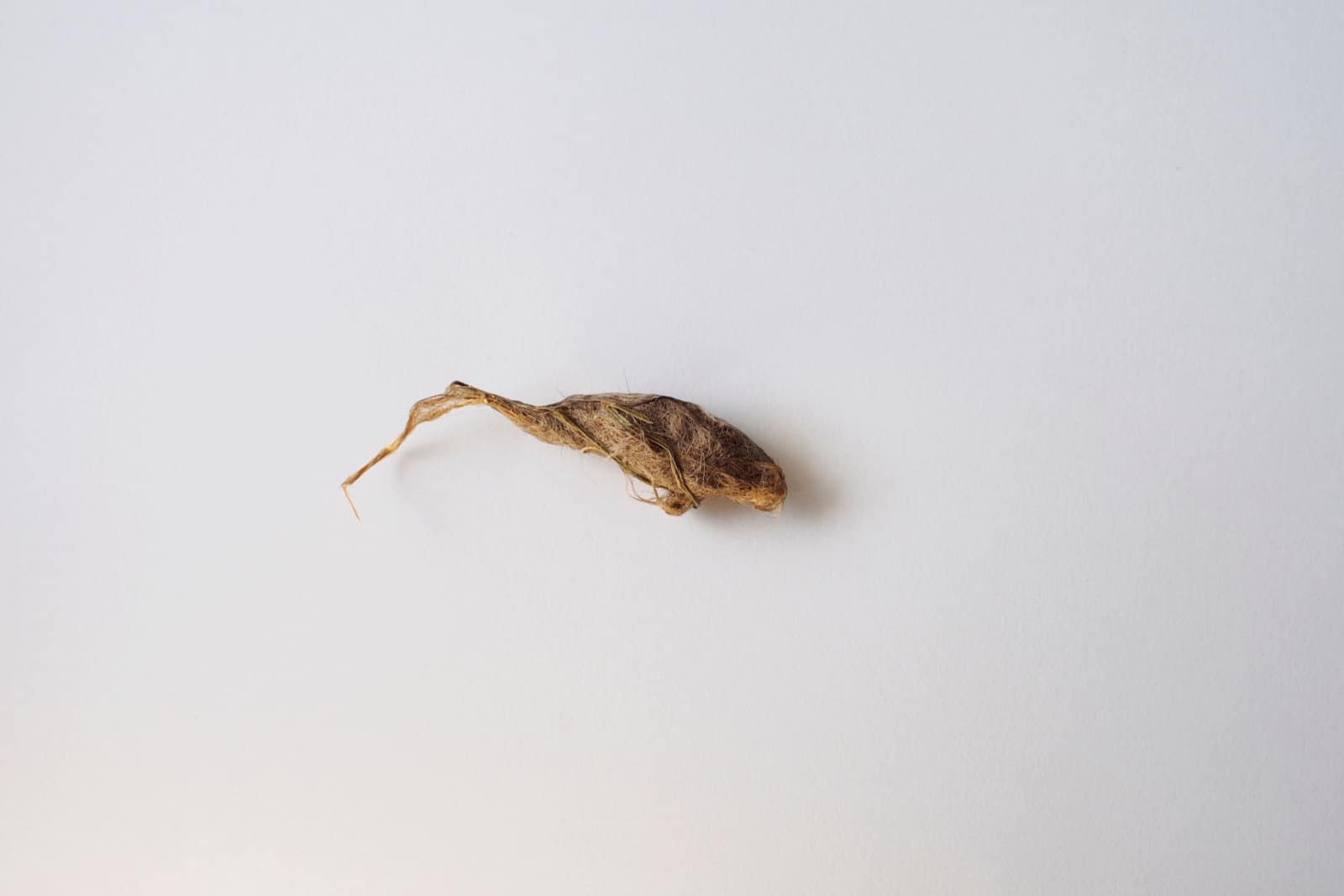
The formation of hairballs is a completely normal condition for cats. Cats groom themselves most of the time as they like to keep their coat clean and in good condition. By grooming, they ingest high amounts of their hair into their digestive system. Later, the hair forms into hairballs, which they eliminate from their body by vomiting or defecating.
So, if your cat’s swallowing a lot or has certain difficulties, the reason for that problem may be hairballs.
The most common symptoms of hairballs in cats are:
• Gulping
• Gagging
• Loss of appetite
• Diarrhea
• Retching
• Hacking sounds
• Intestinal blockages
Although hairballs are a normal condition for cats and are less serious than the two previously mentioned conditions, this too can lead to more severe issues such as constipation.
Therefore, it’s important to determine that the cause of swallowing difficulties in your cat is hairballs and follow the ways that can help you control this issue.
Diagnosis
As previously mentioned, cats often groom themselves and they ingest the loose hair from their bodies. Usually, that hair is expelled in the feces; however, it’s normal that some hair remains in the cat’s stomach and forms a hairball over time.
These hairballs are usually eliminated by vomiting, and they’re thin and elongated because cats have a narrow esophagus.
This condition occurs more often in long-haired cat breeds, especially during the shedding season, and in older cats who are not as flexible as before, which is why they cannot groom themselves properly and require your help.
If you’re not sure whether your cat has a hairball issue or something more severe, you should take it to the vet and inform them about the symptoms, and any changes you noticed in your cat.
To determine the exact underlying cause, the vet will examine the cat carefully, and do blood tests and radiographs in order to find out if the cat has an intestinal blockage.
Treatment Options
There are several treatment options that you can do in your home to keep your cat healthy and reduce the number of hairballs:
• Brush and bathe your cat often – this is an important part of cat grooming care. Through regular brushing, you’ll reduce the dead and loose hair from your cat’s body. The cat will continue grooming themselves; however, the difference is that they’ll ingest minimal amounts of hair, which means that hairball formation will also reduce.
Additionally, you should bathe your cat from time to time. Long-haired and senior cats will often need baths, and this will also be helpful in reducing the amount of loose hair from their body.
• Provide your cat with a fresh water source all the time – water won’t prevent the formation of hairballs; however, it can help the cat’s digestive system work properly. That way, your cat will be hydrated, and chances of constipation are minimal.
• Use cat food with a specialized hairball formula – there are many different types of food nowadays on the market, for every issue or type of cat. There is a cat food with specialized hairball formula. This food has a high fiber content, which is good for a cat’s digestive tract, but it also helps reduce shedding and keep the cat’s coat healthy.
You can follow these instructions at home to prevent cat swallowing difficulties due to hairballs. However, in severe cases of hairball issues, you’ll need a veterinarian’s help.
For example, if your cat suffers from constipation due to hairballs, the vet may recommend a mild laxative that will help the hairballs pass more easily.
If diagnostic tests show that hairballs have caused an intestinal blockage, then the only right treatment option is surgical removal. Still, your feline friend should recover within three weeks after the surgery, of course, with appropriate care and regular vet checks.
FAQ
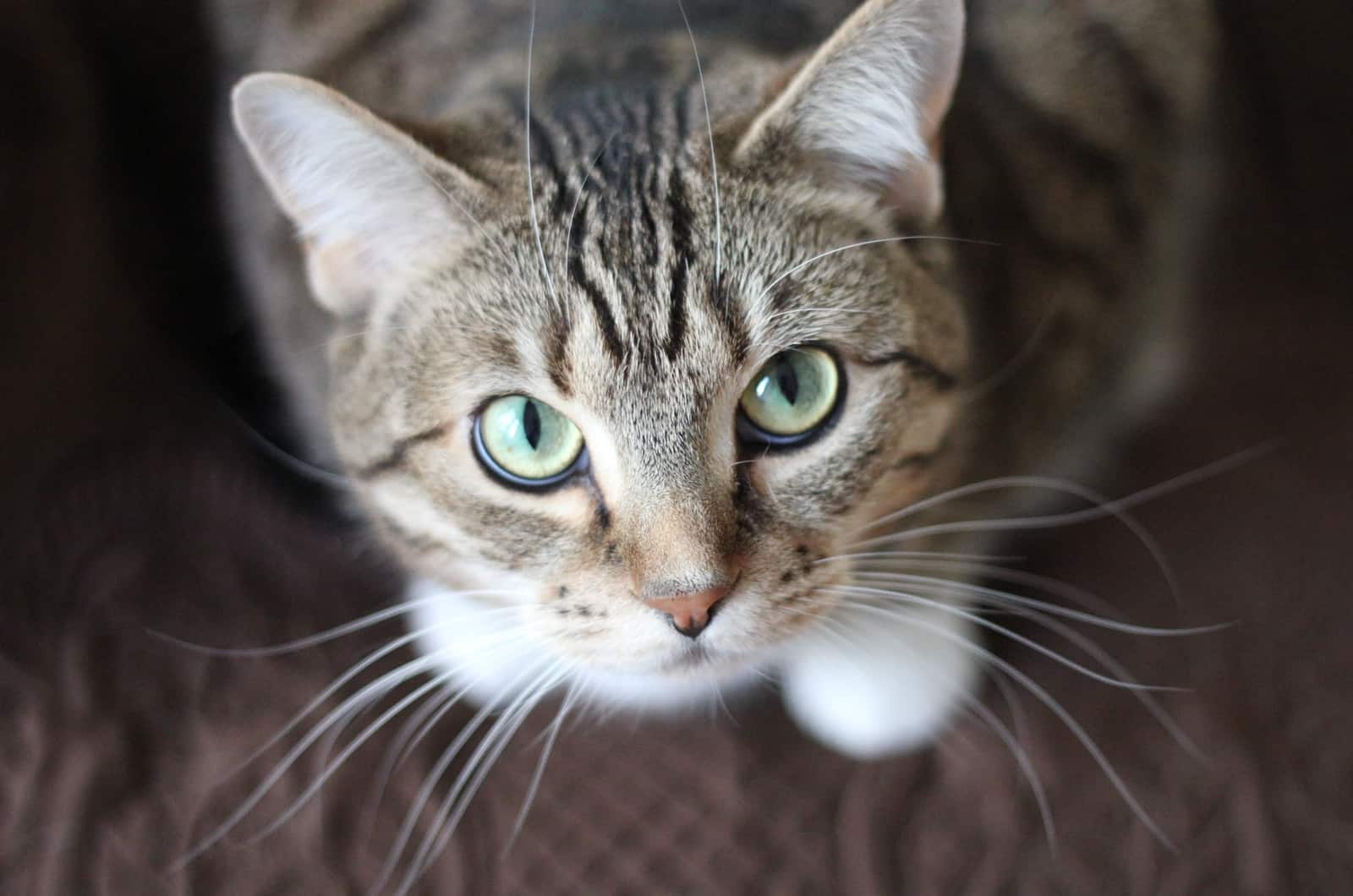
Is Feline Dysphagia Dangerous?
Feline dysphagia isn’t dangerous if you react on time. So, as soon as you notice symptoms of dysphagia, you should rush to the vet.
However, if this condition isn’t treated properly and on time, it can only lead to even more severe issues such as weight loss, dehydration, choking and similar things that can affect the cat’s health very badly.
Why Is My Cat Swallowing While Purring?
You shouldn’t worry if your cat’s swallowing a lot while purring. A cat swallowing repeatedly happens when the cat is overstimulated during relaxing actions, such as purring, kneading, and headbutting. During these activities, cats produce more saliva than usual, which leads to frequent swallowing.
However, if you notice symptoms such as drooling, gulping, gagging, choking, and similar, you should take your feline friend to the vet immediately, as it’s a sign of severe health issues.
Why Can’t My Cat Meow Anymore?
If you notice that your cat cannot meow anymore, followed by not drinking or eating, you should do a quick examination of your cat as the cause may be severe. The two most common reasons for this issue are foreign objects that have become stuck in the cat’s throat or laryngitis.
Both of these issues require special veterinarian help. In some cases, your cat not meowing may be a symptom of other medical issues that need to be properly diagnosed and treated.
Conclusion
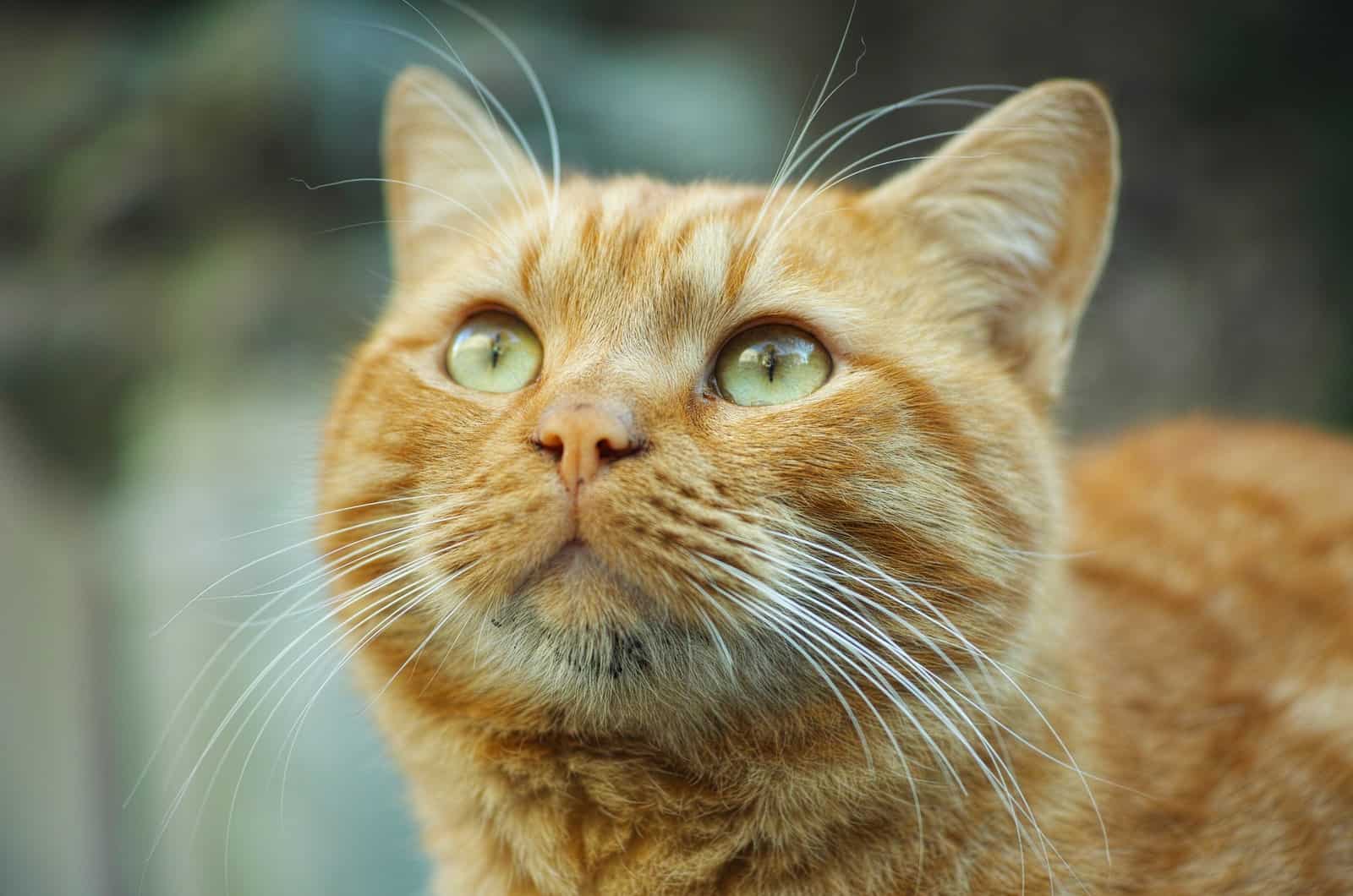
This article provides you with possible causes for your cat swallowing a lot. Swallowing difficulties are usually caused by feline dysphagia, feline asthma, or hairballs.
Each one of these conditions is characterized by certain symptoms that you should notice right away.
Dysphagia may be very dangerous if left untreated. However, if you react on time, the veterinarian will be able to determine the exact underlying cause of the issue and treat it properly.
As far as feline asthma is concerned, there’s no cure for this condition, but the regular use of certain medications that are prescribed by your vet will definitely help your cat to live with this issue easily.
Finally, hairballs are a normal condition in cats. Still, you should groom your cat often in order to minimize the risk of hairballs and keep your cat’s coat healthy.
Ensure you always pay special attention to your cat so that you can react on time if some health issue starts to develop.
Like this post? Share or pin it for later!
